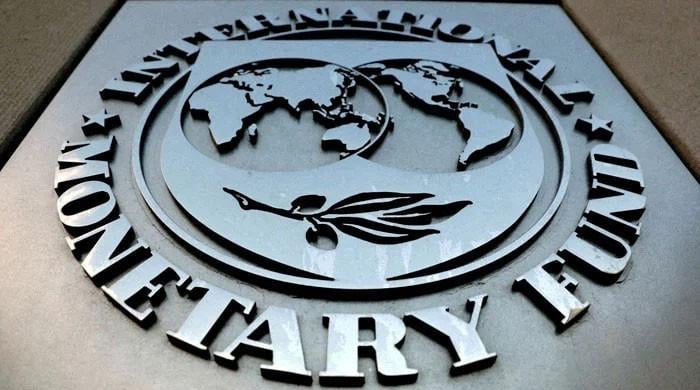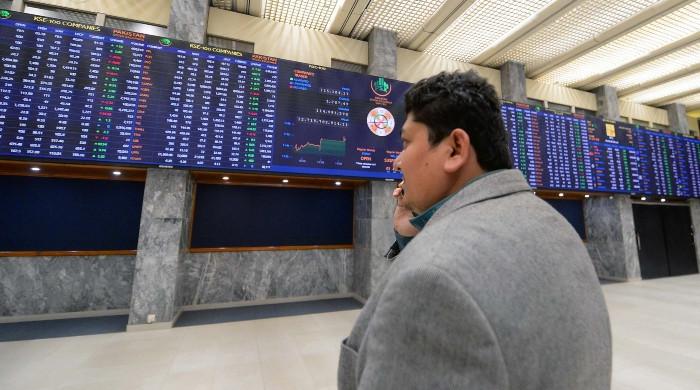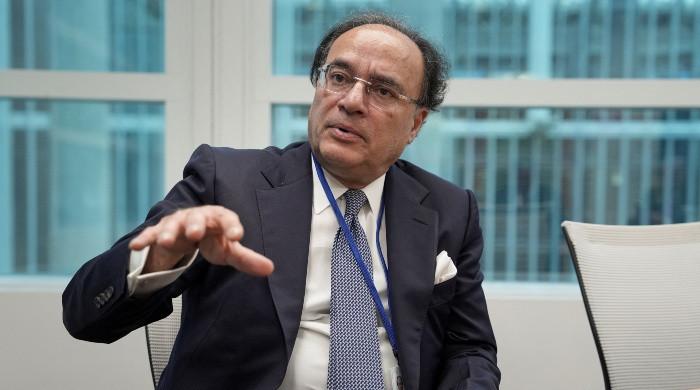Credit Suisse thrown $54 billion lifeline to avert global banking crisis
Switzerland's second-largest and first major global bank to be thrown emergency lifeline since 2008 financial crisis
March 16, 2023

Credit Suisse said on Thursday it would borrow up to $54 billion from Switzerland's central bank to shore up liquidity and investor confidence, after a slump in its shares had intensified fears about a global banking crisis.
The bank's announcement, which came in the middle of the night in Zurich, prompted a 24% rise in Credit Suisse shares and helped reverse some of the heavy losses on stock markets driven by investor fears over potential bank runs across the world.
Credit Suisse is the first major global bank to be thrown an emergency lifeline since the 2008 financial crisis and its troubles have raised serious doubts over whether central banks will be able to sustain their fight against inflation with aggressive interest rate hikes.
Switzerland's second-largest bank said it would exercise an option to borrow up to 50 billion Swiss francs ($54 billion) from the central bank.
That followed assurances from Swiss authorities on Wednesday that Credit Suisse met "the capital and liquidity requirements imposed on systemically important banks" and that it could access central bank liquidity if needed.
JP Morgan analysts said that the measures will buy the Swiss lender time to carry out its restructuring.
"The combination of measures should be sufficient to stem the negative moves across the capital structure as the market priced in the potential impact of liquidity pressures," JP Morgan said in a note on Thursday.
While its shares bounced back, the cost of insuring exposure to Credit Suisse debt tumbled. Five-year credit default swaps were down 128 basis points to 1,016 bps from Wednesday's close after hitting record highs that day.
The European banking index was up 2.4% following the dramatic Swiss intervention, with big bank stocks rising and insurance protection on bonds issued by BNP Paribas, Deutsche Bank and UBS also edging back down.
Throughout most of the Asian day, stocks had wallowed in the red as investors rushed to the relative "safe havens" of gold, bonds and the dollar. While Credit Suisse's announcement helped trim some losses, trade was volatile and sentiment fragile.
The head of Japan's banking lobby said that there were no signs at the moment of the Japanese financial system being affected by a crisis of confidence in Credit Suisse, as Japanese banks are well-capitalised.
Credit Suisse's borrowing will be made under the covered loan facility and a short-term liquidity facility, fully collateralised by high quality assets. It also announced offers for senior debt securities for cash of up to 3 billion francs.
Chief Executive Ulrich Koerner told Credit Suisse staff in a memo they should focus on facts as he pledged to rapidly move forward with a plan to streamline operations.
Credit Suisse would continue to focus on the transformation from a position of strength, citing an improved liquidity coverage ratio and recent capital raisings, Koerner said.
Meanwhile, Credit Suisse bankers in Asia contacted clients to reassure them after the latest inflow of funds.
"We’ve been telling them to read the statements and look at the fact that we are buying 3 billion francs worth of bonds because they are so cheap," said a Hong Kong-based senior banker, who declined to be named.
European epicentre
The 167-year-old bank's problems have shifted the focus for investors and regulators from the United States to Europe, where Credit Suisse led a selloff in bank shares after its largest investor said it could not provide more financial assistance because of regulatory constraints.
The concerns about Credit Suisse added to broader banking sector fears sparked by last week's collapse of Silicon Valley Bank (SVB) and Signature Bank, two US mid-size firms.
Investor focus is also on any action by central banks and other regulators elsewhere to restore confidence.
Policymakers in Australia and South Korea sought to reassure markets that banks in their jurisdictions were well-capitalised.
SVB's demise last week, followed by that of Signature Bank two days later, sent bank stocks on a roller-coaster ride as investors feared another collapse like Lehman Brothers, the Wall Street giant whose failure sparked the global financial crisis.
On Wednesday, Credit Suisse shares led a 7% fall in the European banking index.
The exit for the doors raised fears of a broader threat to the financial system, and two supervisory sources told Reuters that the European Central Bank had contacted banks on its watch to quiz them about their Credit Suisse exposures.
The US Treasury also said it was monitoring the situation around Credit Suisse and was in touch with global counterparts.
Next steps
Rapidly rising interest rates have made it harder for some businesses to pay back or service loans, increasing the chances of losses for lenders already worried about a recession.
Traders are now betting that the Federal Reserve, which last week was expected to accelerate its interest rate hikes in the face of persistent inflation, may hit pause or reverse course.
Bets on a large ECB interest rate hike at Thursday's meeting also evaporated quickly. Money market pricing suggested traders now saw less than a 20% chance of a 50 basis point rate hike.
For now, investors are focussed on Credit Suisse.
"The next important step needs to come out from their CEO and display their new strategy to the public sooner than later to reassure the markets," Tareck Horchani, head of prime brokerage dealing at Maybank Securities in Singapore.











